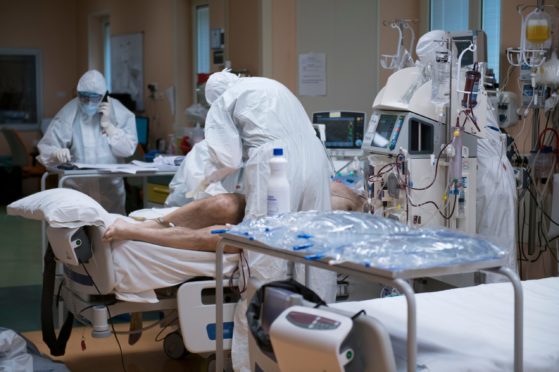A study of more than 70,000 people in more than 300 hospitals in the UK has found that one in two people who went into hospital with COVID-19 developed at least one complication.
The investigation, published in The Lancet, is the first-of-its kind to assess a range of in-hospital complications, and their associations with age, sex and ethnicity, and patient outcomes.
Renal, complex respiratory, and systemic complications, were most common, however cardiovascular, neurological and gastrointestinal and liver complications were also reported.
The report reads: “The relative effect of complications on survival status and quality of life among people of different age groups was not previously understood.
“One of the most notable findings in this study is that the relative risk of death is much higher in younger patients with complications when compared with those of the same age who did not suffer a complication, whereas in older patients, the relative impact of complications on mortality appears to be lower.
More attention ne
“Whether this difference in complications on mortality was statistically significant was not examined by the authors.
“This finding is independent of the presence and number of comorbidities and indicates that attention should also be paid to younger patients who are less likely to die during the acute phase but more likely to live longer with complications in the days after acute or subacute COVID-19.”
Caveats to the findings were also noted.
It continued: “Several questions need to be answered in future studies.
“First, this study only focused on in-hospital complications and its effect on survival status and ability of self-care at discharge.
“Therefore, the effect of complications on long-term consequences need to be assessed.
“Secondly, socioeconomics, race, and ethnicity are important considerations for long COVID-19.”
TRACK CORONAVIRUS: We’ve put together a collection of daily updated charts and maps to track the coronavirus crisis in Scotland.
